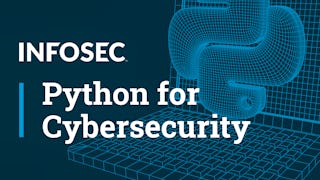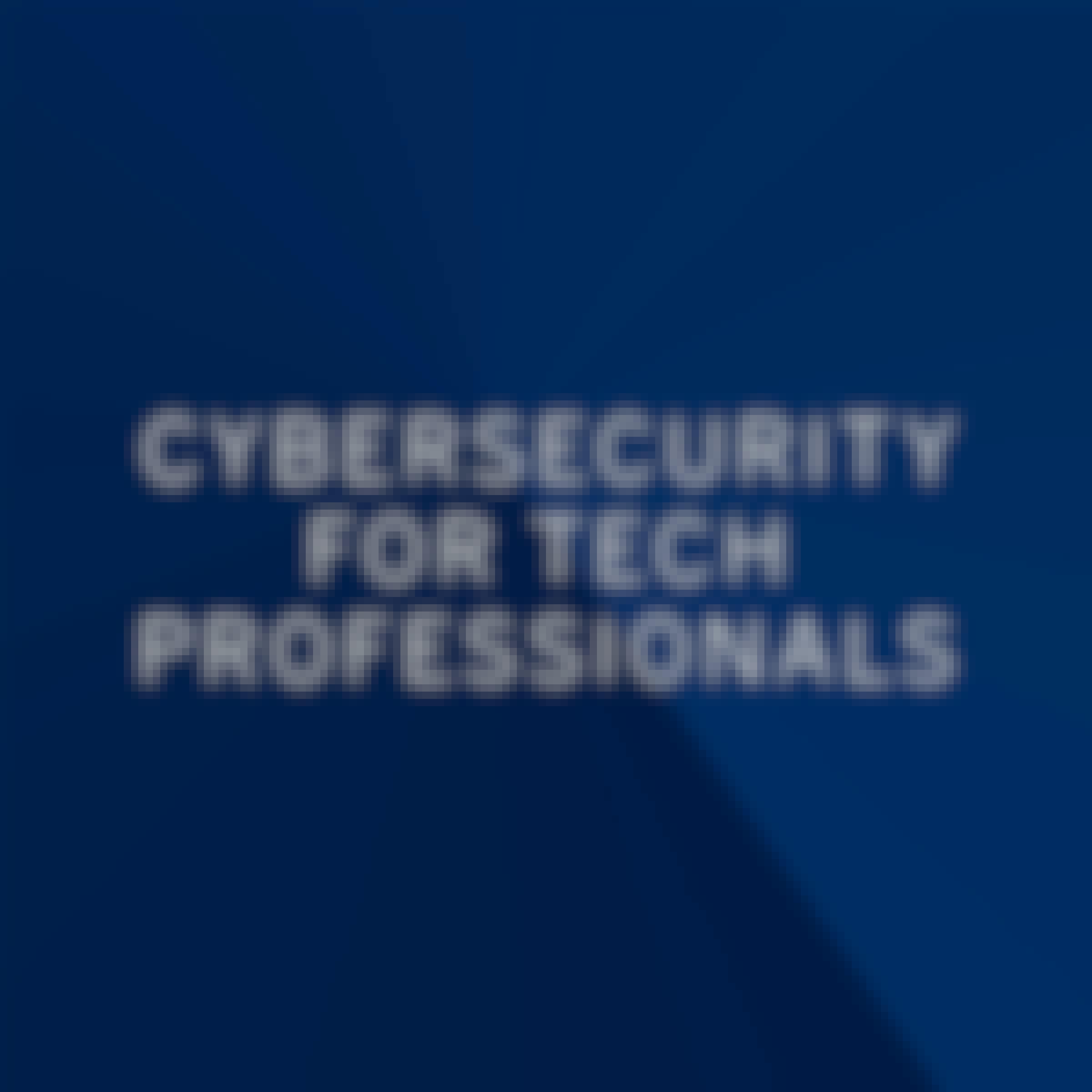- Browse
- Cloud Computing Security
Results for "cloud computing security"
 Status: Free TrialFree TrialU
Status: Free TrialFree TrialUUniversity of Michigan
Skills you'll gain: Statistical Analysis, Program Evaluation, Policy Analysis, Data Analysis, Statistical Methods, Public Policies, Statistical Hypothesis Testing, Policy Development, Analytical Skills, Forecasting, R Programming, Data-Driven Decision-Making, Research Design, Time Series Analysis and Forecasting
4.7·Rating, 4.7 out of 5 stars28 reviewsIntermediate · Course · 1 - 3 Months
 G
GGoogle Cloud
Skills you'll gain: Model Deployment, Fraud detection, Feature Engineering, Exploratory Data Analysis, Model Evaluation, Real Time Data, Applied Machine Learning, MLOps (Machine Learning Operations), Jupyter, Data Analysis, Data Preprocessing, Machine Learning
Beginner · Project · Less Than 2 Hours
 Status: PreviewPreview
Status: PreviewPreviewSkills you'll gain: Cryptography, Network Security, Virtual Networking, Software-Defined Networking, Network Infrastructure, Network Architecture, Computer Networking, Virtualization, Program Development, Hardware Architecture, Open Source Technology, Performance Tuning, Unit Testing
4.6·Rating, 4.6 out of 5 stars137 reviewsBeginner · Course · 1 - 4 Weeks
 Status: Free TrialFree Trial
Status: Free TrialFree TrialSkills you'll gain: Incident Response, Cyber Threat Hunting, Computer Security Incident Management, Cyber Threat Intelligence, Threat Detection, Threat Management, Security Management, Cybersecurity, Continuous Monitoring, Scenario Testing, Technical Communication, Simulations
4.4·Rating, 4.4 out of 5 stars45 reviewsAdvanced · Course · 1 - 4 Weeks
 Status: Free TrialFree Trial
Status: Free TrialFree TrialSkills you'll gain: Cybersecurity, Cyber Operations, Data Persistence, Exploitation techniques, Persistence, Intrusion Detection and Prevention, Scripting, Python Programming, Microsoft Windows
4.6·Rating, 4.6 out of 5 stars96 reviewsIntermediate · Course · 1 - 4 Weeks
 Status: PreviewPreview
Status: PreviewPreviewSkills you'll gain: Generative AI, Responsible AI, Auditing, Compliance Auditing, AI Security, Risk Analysis, Risk Management, Artificial Intelligence, Risk Mitigation, Business Transformation, Machine Learning Methods
4.6·Rating, 4.6 out of 5 stars50 reviewsIntermediate · Course · 1 - 4 Weeks
 Status: Free TrialFree TrialE
Status: Free TrialFree TrialEEDUCBA
Skills you'll gain: Microsoft Azure, Cloud Computing, Virtual Machines, Cloud Infrastructure, Virtual Networking, Cloud Applications, Cloud Deployment, Application Deployment, Virtual Private Networks (VPN), Virtualization, Cloud Storage, Scalability
5·Rating, 5 out of 5 stars21 reviewsIntermediate · Course · 1 - 3 Months

Skills you'll gain: Kubernetes, Scalability, Multi-Tenant Cloud Environments, Google Cloud Platform, Infrastructure Architecture, Cloud Management
Beginner · Project · Less Than 2 Hours
 Status: PreviewPreviewC
Status: PreviewPreviewCCampus BBVA
Skills you'll gain: Computer Security Incident Management, Cybersecurity, Cyber Attacks, Incident Response, Crisis Management, Security Information and Event Management (SIEM), Data Security, Fraud detection, Network Security, Security Awareness, Threat Detection, Payment Systems, Identity and Access Management, Mobile Security, Virtual Private Networks (VPN), Authentications
4.7·Rating, 4.7 out of 5 stars191 reviewsIntermediate · Course · 1 - 3 Months
 Status: Free TrialFree TrialW
Status: Free TrialFree TrialWWhizlabs
Skills you'll gain: Amazon CloudWatch, AWS CloudFormation, Serverless Computing, Configuration Management, Amazon Web Services, DevOps, Infrastructure as Code (IaC), Amazon Elastic Compute Cloud, AWS Identity and Access Management (IAM), Cloud Applications, Scalability, System Monitoring
4.1·Rating, 4.1 out of 5 stars15 reviewsIntermediate · Course · 1 - 4 Weeks

Skills you'll gain: Adobe Photoshop, Photo Editing, Adobe Creative Cloud, Editing, Image Quality, Graphic Design, File Management
Intermediate · Guided Project · Less Than 2 Hours

Skills you'll gain: Text Mining, Natural Language Processing, Cloud API, Google Cloud Platform, Unstructured Data, Classification And Regression Tree (CART), Application Programming Interface (API), Data Analysis
Intermediate · Project · Less Than 2 Hours
In summary, here are 10 of our most popular cloud computing security courses
- Assisting Public Sector Decision Makers With Policy Analysis: University of Michigan
- Data Analysis with the FraudFinder Workshop: Google Cloud
- Intel® Network Academy - Network Transformation 102: Intel
- Advanced Threat Hunting and Incident Response: LearnQuest
- Execution, persistence, privilege escalation and evasion: Infosec
- Auditing Generative AI: Strategy, Analysis & Risk Mitigation: ISACA
- Microsoft Azure - Basics: EDUCBA
- Manage Multi-cluster Workloads at Scale with GKE Fleets and Teams: Google Cloud
- Cybersecurity for Tech Professionals: Campus BBVA
- Getting Started with AWS DevOps: Whizlabs










